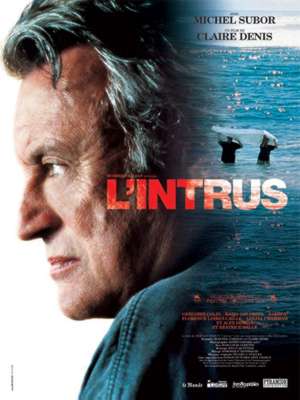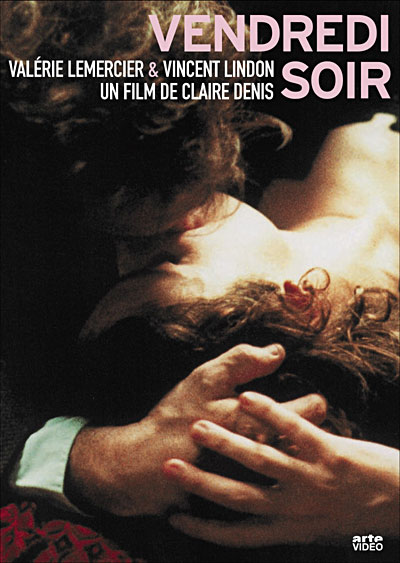Ordet. (1955) Carl Theodor Dreyer
The list used to be called the "Arts and Faith Top 100 Most Spiritually Significant Films." This year, after much lobbying from a few of us (yours truly, included) we've whittled it down to be called, simply, "The Arts and Faith Top 100 Films." It's a sufficient explanation, but taking out that tiny word "spiritual" probably threw quite a few of us off in the voting process. To look at a film in light of its so-called "spirituality" is indeed different than looking at it purely from an "arts and faith" standpoint. The list has changed quite a bit over the years, and this recent iteration is no different -- but there are still 40 films that have made it on all four versions so far.
Our hosts at IMAGE will be creating a main page for the t100 (as I like to refer to it), and 100 separate pages -- one page for each of the films, and we'll be writing a blurb for each regarding why we chose it, of our love for the work and the reasoning behind its inclusion. This year we had 44 voters spanning some of the top Christian critics in both print and on the net, to your average a&f cinephile like myself. Votes were gathered from several continents and results range from films in the 1920s through present day.
Here are the results, and again, I can't stress how happy I am:
1. Ordet, 1955, Carl Theodor Dreyer
2. The Decalogue ("Dekalog"), 1987, Krzysztof Kieslowski
3. Babette’s Feast, 1987, Gabriel Axel
4. The Passion of Joan of Arc, 1928 Carl Theodor Dreyer
5. The Son, ("Le Fils"), 2002, Jean-Pierre & Luc Dardenne
6. Au Hasard Balthazar, 1966, Robert Bresson
7. Sunrise: A Song of Two Humans, 1927, F.W. Murnau
8. Andrei Rublev, 1969, Andrei Tarkovsky
9. Early Summer ("Bakushû"), 1951, Yasujiro Ozu
10. The Gospel According to Matthew, 1964, Pier Paolo Pasolini
11. The Diary of a Country Priest, 1951, Robert Bresson
12. Wings of Desire, 1987, Wim Wenders
13. The Seventh Seal, 1957, Ingmar Bergman
14. Ikiru, 1952, Akira Kurosawa
15. Three Colors Trilogy, 1993, 1994, 1994, Kryzysztof Kieslowski
16. The Mirror, 1975, Andrei Tarkovsky
17. Apu Trilogy (Pather Panchali, Aparajito, Apu Sansar), 1955/56/59, Satyajit Ray
18. Floating Weeds, 1959, Yasujiro Ozu
19. Munyurangabo, 2007, Lee Isaac Chung
20. The Burmese Harp, 1956, Kon Ichikawa
21. Tokyo Story, 1953, Yasujiro Ozu
22. A Serious Man, 2009, Ethan and Joel Coen
23. My Night at Maud's, 1969, Eric Rohmer
24. Into Great Silence, 2005, Philip Gröning
25. Nostalghia, 1983, Andrei Tarkovsky
26. Still Life, 2006, Zhang Ke Jia
27. L'Enfant, 2005, Jean-Pierre and Luc Dardenne
28. The Bicycle Thief, 1948, Vittorio De Sica
29. A Man Escaped, 1956, Robert Bresson
30. Stalker, 1979, Andrei Tarkovsky
31. A Man for All Seasons, 1966, Fred Zinnemann
32. The Apostle, 1997, Robert Duvall
33. The Island, ("Ostrov"), 2006, Pavel Lungin
34. Close-Up ("Nema-ye Nazdik"), 1990, Abbas Kiarostami
35. Wild Strawberries, 1957, Ingmar Bergman
36. Days of Heaven, 1978, Terrence Malick
37. Playtime, 1967, Jacques Tati
38. Winter Light, 1963, Ingmar Bergman
39. Through a Glass Darkly ("Såsom i en spegel"), 1961, Ingmar Bergman
40. The House is Black, (Khaneh siah ast), 1964, Forugh Farrokhzad
41. Summer / The Green Ray ("Le Rayon vert"), 1986, Eric Rohmer
42. Day of Wrath (“Vredens dag”), 1943, Carl Theodor Dreyer
43. Silent Light, 2007, Carlos Reygadas
44. La Promesse, Jean-Pierre & Luc Dardenne
45. It's a Wonderful Life, 1946, Frank Capra
46. M, 1931, Fritz Lang
47. Late Spring ("Banshun"), 1972, Yasujiro Osu
48. Killer of Sheep, 1977, Charles Burnett
49. Solaris, 1972, Andrei Tarkovsky
50. The Cyclist, ("Bicycleran"), 1987, Mohsen Makhmalbaf
51. The Spirit of the Beehive, ("El espíritu de la colmena"), 1973, Víctor Erice
52. Cries and Whispers, 1973, Ingmar Bergman
53. My Life to Live, 1962, Jean-Luc Godard
54. The Straight Story, 1999, David Lynch
55. Flowers of St. Francis, 1950, Roberto Rossellini
56. Ponette, 1996, Jacques Doillon
57. The Wind Will Carry Us, 1999, Abbas Kiarostami
58. Magnolia, 1999, Paul Thomas Anderson
59. Faust, 1926, F.W. Murnau
60. Fanny and Alexander, 1982, Ingmar Bergman
61. Paris, Texas, 1984, Wim Wenders
62. A Moment of Innocence, 1997, Mohsen Makhmalbaf
63. The Trial of Joan of Arc, 1962, Robert Bresson
64. Beau travail, 1999, Claire Denis
65. After Life, 1999, Hirokazu Koreeda
66. By Brakhage: An Anthology, 2003, Stan Brakhage
67. Lorna's Silence, 2008, Jean-Pierre and Luc Dardenne
68. 4 Months, 3 Weeks, and 2 Days, 2007, Cristian Mungiu
69. Chariots of Fire, 1982, Hugh Hudson
70. Derzu Uzala, 1975, Akira Kurosawa
71. An Autumn Afternoon, 1962, Yasujiro Ozu
72. Heartbeat Detector, 2007, Nicolas Klotz
73. Tender Mercies, 1983, Bruce Beresford
74. Summer Hours, 2008, Olivier Assayas
75. Rashômon, 1950, Akira Kurosawa
76. Becket, 1964, Peter Glenville
77. Black Narcissus, 1947, Michael Powell, Emeric Pressburger
78. Eureka, 2000, Shinji Aoyama
79. Meshes in the Afternoon, 1943, Maya Deren and Alexander Hammid
80. Open City ("Roma, citta apera"), 1945, Roberto Rossellini
81. Syndromes and a Century, 2006, Apichatpong Weerasethakul
82. Rosetta, 1999, Jean-Pierre & Luc Dardenne
83. Yi Yi: A One and a Two, 2000, Edward Yang
84. Pickpocket, 1959, Robert Bresson
85. Punch-Drunk Love, 2002, Paul Thomas Anderson
86. Offret ("The Sacrifice"), 1986, Andrei Tarkovsky
87. Stroszek, 1977, Werner Herzog
88. Jesus of Montreal, 1989, Denys Arcand
89. Ushpizin, 2004, Giddi Dar
90. Frisbee: The Life and Death of a Hippie Preacher, 2005, David Di Sabatino
91. Au Revoir, Les Enfants, 1987, Louis Malle
92. Son of Man, 2006, Mark Dornford-May
93. The Virgin Spring, 1960, Ingmar Bergman
94. In Praise of Love, 2001, Jean-Luc Godard
95. Crimes and Misdemeanors, 1989, Woody Allen
96. The New World, 2005, Terrence Malick
97. M. Hulot's Holiday, 1953, Jacques Tati
98. The Return, 2003, Andrei Zvyagintsev
99. Breaking the Waves, 1996, Lars von Trier
100. Song of Bernadette, 1943, Henry King
As per usual after the vote, I have about 40 films to catch up on. I can't wait to get in on the discussion. I'm sure I'll be keeping this little Filmsweep up to date on all the action, as well.
Oh -- and how nice to see both Brakhage and seven Bergmans represented this time around! I am stoked about that. :) And for the first time, all five of the distributed Dardennes films are on the list. I am delighted, I really am about to blow up with excitement! (Yes, I really am that much of a film nerd!)
You are always invited to join the forum at A&F. You can stop by and introduce yourself Here, or just jump into the learning and/or debate & discussion, whenever you think the timing feels right.
See you there.
















